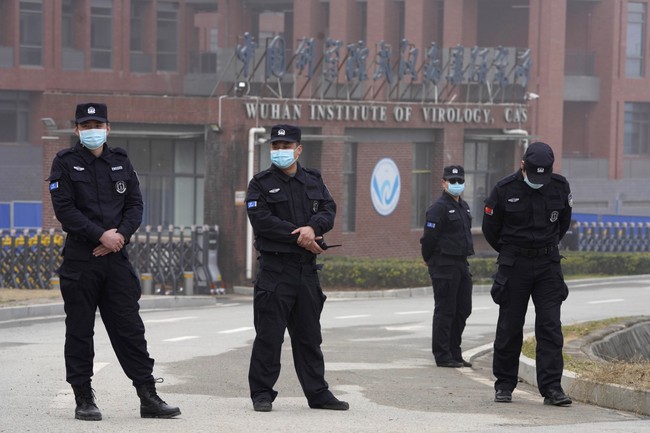You are using an out of date browser. It may not display this or other websites correctly.
You should upgrade or use an alternative browser.
You should upgrade or use an alternative browser.
In The News...
- Thread starter MasterBlaster
- Start date
- Replies 13K
- Views 1M
More options
Who Replied?gf beranek
Old Schooler
Who the heck planned that route?
pantheraba
More biners!!!
Wait a minute... This idea is from the guy that invented the life support mechanism I use in a tree??just drive a truck into it from the other way.

Nutball
TreeHouser
It's so simple it could work. Sounds good enough for life support.
Marc-Antoine
TreeHouser
The tricky part is adjusting the speed just right for the second truck, or it will move too far or not enough, Then you need a third truck to finish, or a fourth ...
Nutball
TreeHouser
One at the same speed & weight should get it close enough
Mellow
BCMA
One at the same speed & weight should get it close enough
Actually, I suspect it would take less force to push it back into place. I'm not an engineer but I dabble in physics.
murphy4trees
TreeHouser
Fukushima is still all bad news. They still don't know how long it's going to take or how they are going to do it. The cost could be 200 billion over 30+ years. That's just a fraction.. around 8% of the 2.4 trillion the US spent on the gulf war.

 apnews.com
apnews.com

 apnews.com
apnews.com

EXPLAINER: How dangerous is the Fukushima nuke plant today?
OKUMA, Japan (AP) — A decade ago, a massive tsunami crashed into the Fukushima Daiichi nuclear power plant.

Japan revises Fukushima cleanup plan, delays key steps
TOKYO (AP) — Japan on Friday revised a roadmap for the cleanup of the tsunami-wrecked Fukushima nuclear plant, further delaying the removal of thousands of spent fuel units that remain in cooling pools since the 2011 disaster.
BlackSmith
Uncivil

House Democrats Block Bill to Declassify Intel on COVID Origins
By a vote of 216 to 207 Tuesday evening, Democrats in the House of Representatives blocked considera
July 20, 2021 (Tuesday)
Today, the U.S. Attorney’s office for the Eastern District of New York indicted three men for illegally influencing the foreign policy positions of a presidential candidate and then, after the election, of the United States government.
They were acting in the interests of the United Arab Emirates (UAE), a wealthy country in the Persian Gulf. The candidate was Donald Trump, and one of the three men was his ally Thomas Barrack. Another was Matthew Grimes, a 27-year-old employee who reported to Barrack. The third was UAE citizen Rashid al-Malik Alshahhi, who lived in California until 2018, leaving abruptly after the FBI interviewed him about the case.
The return of Barrack to the news recalls the outsized influence of foreign actors in the previous administration, and how U.S. policy appeared to change to suit their interests. On Twitter, Mark Mazetti of the New York Times wrote: “One of the mysteries of Trump's first six months was why the administration came out of the gate so hot for Saudi and UAE—with Trump traveling to Saudi Arabia and then going along with the Qatar blockade. The Tom Barrack indictment explains a lot.”
A billionaire private equity real-estate investor and longtime ally of Trump, Barrack was a key fundraiser for Trump’s campaign, which he advised between April and November 2016. In June 2018, New York Times reporter David D. Kirkpatrick wrote a profile of Barrack, explaining that he is the son of Lebanese immigrants to Los Angeles and so grew up speaking Arabic, which helped him do business and make contacts in the UAE and Saudi Arabia.
Barrack got to know Trump in the real estate world of the 1980s, and by 2010, he acquired $70 million of Jared Kushner’s debt and retired enough of it to keep Kushner from bankruptcy. When Trump launched his 2016 campaign with anti-Muslim rhetoric, Barrack calmed his Middle East contacts down, assuring them that Trump was simply using hyperbole.
Barrack urged Trump to hire Paul Manafort—fresh from his stint working for a Ukrainian oligarch—and served as chair of Trump’s inaugural committee. Grimes and Barrack proposed to contacts in the UAE that it should use “its vast economic surplus to obtain a level of influence…which the country should rightfully command.” They suggested it should use financial investments to “increase [its] influence with USA and European governments and people.”
A final draft of their proposal explained that “[w]hile the primary purpose of the platform [will be] to achieve outsized financial returns, it will also…garner political credibility for its contributions to the policies of [the recently elected Candidate, hereinafter, the ‘President-Elect’]....We will do so by sourcing, investing, financing, operationally improving, and harvesting assets in those industries which will benefit most from a [President-Elect] Presidency.”
Barrack’s investment firm raised more than $7 billion between 2016 and 2018, 24% of it from either the UAE or Saudi Arabia.
According to today’s charges, once Trump was in office, Barrack continued to lobby for the UAE until April 2018. He allegedly worked with allies in the UAE to draft passages of Trump’s speeches, hone press materials, and prepare talking points to promote UAE interests. Without ever registering as a foreign agent, he worked to change U.S. foreign policy and appoint administration officials to meet a “wish list” produced by UAE officials.
Barrack helped to tie the Trump administration to Saudi Arabia and the UAE, turning the US away from Qatar, an ally that hosts US air bases (although they are now being closed as bases and in the process of becoming housing for our Afghan allies before their US visas come through). From the beginning, the administration worked closely with Abu Dhabi Crown Prince Mohammed bin Zayed, who controls $1.3 trillion in sovereign wealth funds and essentially rules the UAE, and with Saudi Crown Prince Mohammed bin Salman (MBS), whom Prince Mohammed championed.
In May 2017, Trump advisers Jared Kushner and Steve Bannon, along with Saudi and UAE leaders, met without the knowledge of then–Secretary of State Rex Tillerson to talk about blockading Qatar. When Saudi Arabia, the UAE, Bahrain, and Egypt launched a blockade on June 5, 2017, Trump cheered them on, although the State Department took a neutral stand and the Pentagon thanked Qatar for hosting US troops.
Today, prosecutors said that Barrack provided foreign government officials “with sensitive non-public information about developments within the Administration, including information about the positions of multiple senior United States government officials with respect to the Qatari blockade conducted by the UAE and other Middle Eastern countries.”
They say he also "met with and assisted senior leaders of the KSA [Kingdom of Saudi Arabia], a close ally of the UAE."
In May 2019, Secretary of State Mike Pompeo declared an emergency to bypass congressional oversight of an $8 billion arms sale to Saudi Arabia and the UAE. After the UAE signed onto the Abraham Accords, normalizing relations with Israel, the U.S. sold them another $23 billion of arms, including 50 F-35 advanced fighter planes.
Barrack and Grimes were arrested this morning in California.
Today, the U.S. Attorney’s office for the Eastern District of New York indicted three men for illegally influencing the foreign policy positions of a presidential candidate and then, after the election, of the United States government.
They were acting in the interests of the United Arab Emirates (UAE), a wealthy country in the Persian Gulf. The candidate was Donald Trump, and one of the three men was his ally Thomas Barrack. Another was Matthew Grimes, a 27-year-old employee who reported to Barrack. The third was UAE citizen Rashid al-Malik Alshahhi, who lived in California until 2018, leaving abruptly after the FBI interviewed him about the case.
The return of Barrack to the news recalls the outsized influence of foreign actors in the previous administration, and how U.S. policy appeared to change to suit their interests. On Twitter, Mark Mazetti of the New York Times wrote: “One of the mysteries of Trump's first six months was why the administration came out of the gate so hot for Saudi and UAE—with Trump traveling to Saudi Arabia and then going along with the Qatar blockade. The Tom Barrack indictment explains a lot.”
A billionaire private equity real-estate investor and longtime ally of Trump, Barrack was a key fundraiser for Trump’s campaign, which he advised between April and November 2016. In June 2018, New York Times reporter David D. Kirkpatrick wrote a profile of Barrack, explaining that he is the son of Lebanese immigrants to Los Angeles and so grew up speaking Arabic, which helped him do business and make contacts in the UAE and Saudi Arabia.
Barrack got to know Trump in the real estate world of the 1980s, and by 2010, he acquired $70 million of Jared Kushner’s debt and retired enough of it to keep Kushner from bankruptcy. When Trump launched his 2016 campaign with anti-Muslim rhetoric, Barrack calmed his Middle East contacts down, assuring them that Trump was simply using hyperbole.
Barrack urged Trump to hire Paul Manafort—fresh from his stint working for a Ukrainian oligarch—and served as chair of Trump’s inaugural committee. Grimes and Barrack proposed to contacts in the UAE that it should use “its vast economic surplus to obtain a level of influence…which the country should rightfully command.” They suggested it should use financial investments to “increase [its] influence with USA and European governments and people.”
A final draft of their proposal explained that “[w]hile the primary purpose of the platform [will be] to achieve outsized financial returns, it will also…garner political credibility for its contributions to the policies of [the recently elected Candidate, hereinafter, the ‘President-Elect’]....We will do so by sourcing, investing, financing, operationally improving, and harvesting assets in those industries which will benefit most from a [President-Elect] Presidency.”
Barrack’s investment firm raised more than $7 billion between 2016 and 2018, 24% of it from either the UAE or Saudi Arabia.
According to today’s charges, once Trump was in office, Barrack continued to lobby for the UAE until April 2018. He allegedly worked with allies in the UAE to draft passages of Trump’s speeches, hone press materials, and prepare talking points to promote UAE interests. Without ever registering as a foreign agent, he worked to change U.S. foreign policy and appoint administration officials to meet a “wish list” produced by UAE officials.
Barrack helped to tie the Trump administration to Saudi Arabia and the UAE, turning the US away from Qatar, an ally that hosts US air bases (although they are now being closed as bases and in the process of becoming housing for our Afghan allies before their US visas come through). From the beginning, the administration worked closely with Abu Dhabi Crown Prince Mohammed bin Zayed, who controls $1.3 trillion in sovereign wealth funds and essentially rules the UAE, and with Saudi Crown Prince Mohammed bin Salman (MBS), whom Prince Mohammed championed.
In May 2017, Trump advisers Jared Kushner and Steve Bannon, along with Saudi and UAE leaders, met without the knowledge of then–Secretary of State Rex Tillerson to talk about blockading Qatar. When Saudi Arabia, the UAE, Bahrain, and Egypt launched a blockade on June 5, 2017, Trump cheered them on, although the State Department took a neutral stand and the Pentagon thanked Qatar for hosting US troops.
Today, prosecutors said that Barrack provided foreign government officials “with sensitive non-public information about developments within the Administration, including information about the positions of multiple senior United States government officials with respect to the Qatari blockade conducted by the UAE and other Middle Eastern countries.”
They say he also "met with and assisted senior leaders of the KSA [Kingdom of Saudi Arabia], a close ally of the UAE."
In May 2019, Secretary of State Mike Pompeo declared an emergency to bypass congressional oversight of an $8 billion arms sale to Saudi Arabia and the UAE. After the UAE signed onto the Abraham Accords, normalizing relations with Israel, the U.S. sold them another $23 billion of arms, including 50 F-35 advanced fighter planes.
Barrack and Grimes were arrested this morning in California.
murphy4trees
TreeHouser
that's an act of treason... fk em all
House Democrats Block Bill to Declassify Intel on COVID Origins
By a vote of 216 to 207 Tuesday evening, Democrats in the House of Representatives blocked consideratownhall.com
Johnnie Walker's gonna be trialing paper bottles this year...

I'm interested in seeing how they work. I'll definitely be getting a bottle if I see one.

I'm interested in seeing how they work. I'll definitely be getting a bottle if I see one.
BlackSmith
Uncivil
I wasn’t aware glass couldn’t be recycled.
kevin bingham
TreeHouser
- Joined
- Nov 10, 2010
- Messages
- 4,788

Why the world is running out of sand
It may be little more than grains of weathered rock, and can be found on deserts and beaches around the world, but sand is also the world’s second most consumed natural resource.
BlackSmith
Uncivil
I’d rather have my Jonnie Walker without the dioxin chaiser.
Mellow
BCMA
Jeff Bezos' rocket looks like a giant...
Similar threads
- Replies
- 55
- Views
- 9K
Users who are viewing this thread
Total: 26 (members: 0, guests: 26)

